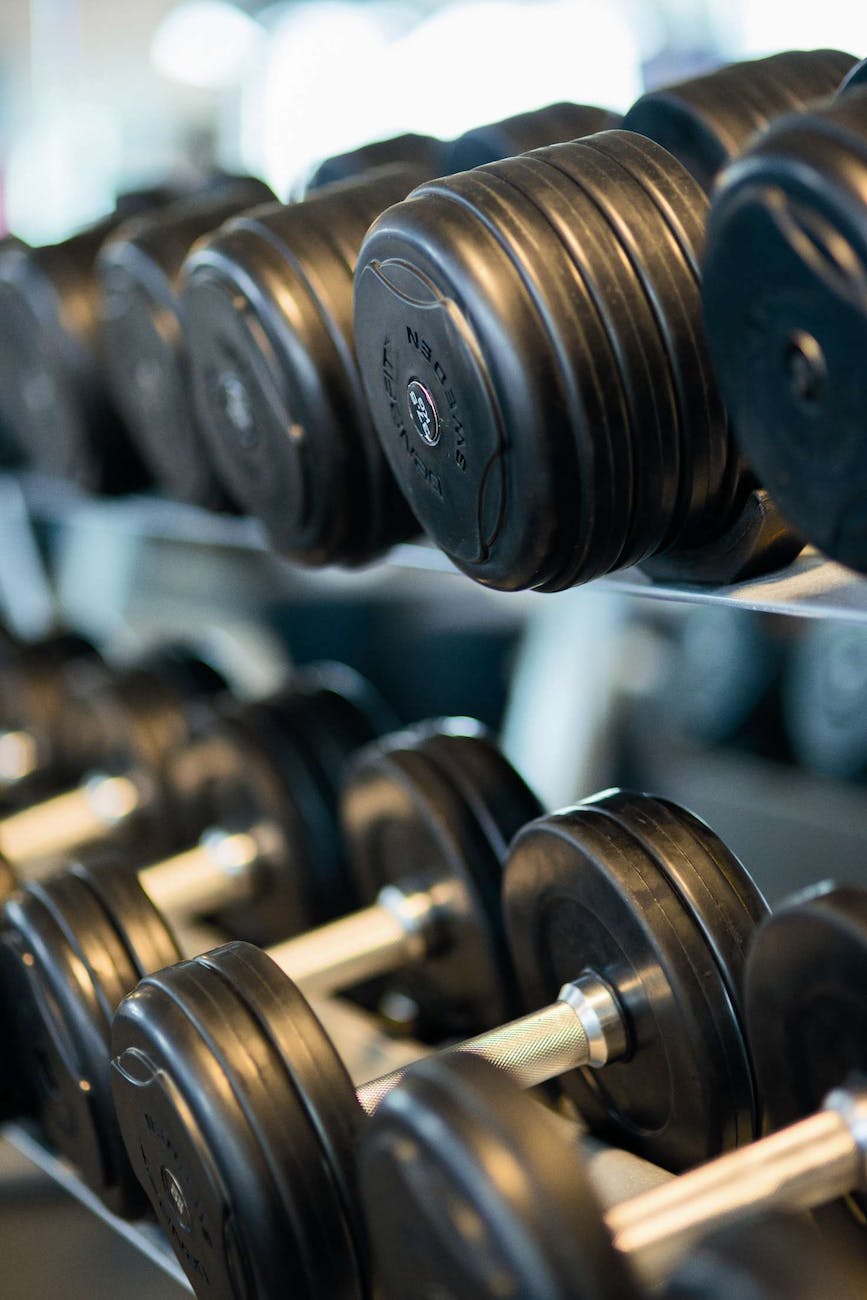Welcome to the world of muscle building for beginners. You may find it overwhelming or intimidating to start your fitness journey. However, it’s crucial to remember that everyone starts somewhere. As a novice, it’s essential to gain an understanding of the basics of muscle building before diving headfirst into a new routine. This knowledge will provide a solid foundation to build upon, equipping you with the tools necessary to achieve your fitness goals.
Muscle building, or hypertrophy, is a process that involves an increase in the size of muscle cells. This occurs as a result of an increase in the workload placed on the muscle over time. This process is not as simple as lifting heavy weights and hoping for the best. It requires a holistic approach that includes proper nutrition, adequate rest, and a well-rounded exercise regimen.
Muscle building is a journey, not a destination. It requires patience, dedication, and discipline. It’s not about comparing yourself to others but about becoming the best version of yourself. Remember, progress is progress, no matter how small, and every step you take brings you closer to your goals.
Understanding the Basics of Muscle Building
Muscle building for beginners is more than just lifting weights. It’s about understanding the science behind muscle growth and how our bodies respond to exercise. This section will delve deeper into the physiology of muscle building, providing a comprehensive understanding of the processes involved.
Muscles grow through a process called muscle protein synthesis. When we exercise, we create microscopic tears in our muscle fibers. Our body then repairs these tears, causing the muscles to grow larger and stronger in the process. This repair process is where muscle protein synthesis comes into play, as it is responsible for creating new muscle tissue.
Understanding the basics of muscle building also involves understanding the crucial role that nutrition plays in the process. The nutrients we consume are the building blocks our bodies use to repair and grow muscle tissue. Therefore, a balanced diet that provides the necessary nutrients is a crucial component of any muscle-building regimen.
The Importance of Muscle Building for Beginners
Now that we’ve covered the basics let’s delve into why muscle building is important, particularly for beginners. Building muscle is about more than just aesthetics; it’s about improving your overall health and well-being.

Firstly, muscle building increases your strength, which can improve your performance in daily activities and protect you from injury. More muscle mass also means a higher metabolic rate, which can help you burn more calories and maintain a healthy weight.
Moreover, muscle building can improve your posture and help you combat the effects of aging. As we age, we naturally lose muscle mass, a process known as sarcopenia. Regular resistance training can slow down this process, helping you maintain your strength and mobility as you age.
Fundamental Principles of Muscle Building
Embarking on your muscle-building journey requires a solid understanding of its fundamental principles. These principles will guide your workouts and help you maximize your gains.
The first principle is progressive overload. This involves gradually increasing the amount of stress placed on your muscles over time. This can be achieved by increasing the weight you lift, the number of repetitions or sets you do, or the intensity of your workouts.
The second principle is specificity. This means that your training should be specific to your goals. If your goal is to build muscle, your workouts should be designed to promote hypertrophy.
Lastly, the principle of individuality should be considered. This means that everyone is different, and what works for one person may not work for another. Therefore, it’s important to listen to your body and adjust your workouts and diet according to your individual needs and responses.
Starting Your Muscle Building Journey: A Guide for Beginners
Starting your muscle-building journey can be both exciting and daunting. However, equipped with the right knowledge and mindset, you can set yourself up for success.
Firstly, it’s important to set clear, realistic goals. Having a clear goal in mind will provide you with the motivation you need to stick to your routine and make progress.
Next, you’ll need to develop a workout routine that aligns with your goals. This should involve a combination of resistance training exercises that target all major muscle groups. It’s also important to start slowly and gradually increase the intensity of your workouts to prevent injury.
Lastly, remember that nutrition is just as important as exercise when it comes to muscle building. Therefore, you’ll need to ensure you’re consuming enough protein and other essential nutrients to fuel your workouts and promote muscle recovery and growth.
Essential Muscle Building Exercises for Beginners
As a beginner, it’s essential to focus on compound exercises. These are exercises that work multiple muscle groups at once, providing a full-body workout and promoting overall muscle growth. Some essential compound exercises for beginners include squats, deadlifts, bench press, and pull-ups.
Squats are a great exercise for building lower body strength. This exercise targets your quadriceps, hamstrings, glutes, and core muscles. Deadlifts, on the other hand, work your entire posterior chain, including your back, glutes, and hamstrings.
The bench press is an excellent exercise for building upper body strength. It targets your chest, shoulders, and triceps. Pull-ups, meanwhile, work your back and bicep muscles.
In addition to these exercises, it’s also important to incorporate isolation exercises into your routine. These are exercises that target a single muscle group, allowing you to focus on specific areas of your body.
Nutrition and Diet for Muscle Building
Nutrition plays a crucial role in muscle building. Without the right nutrients, your body won’t have the resources it needs to repair and grow muscle tissue.
Protein is particularly important as it provides the amino acids your body needs to build new muscle tissue. Therefore, it’s essential to include a good source of protein in every meal. Good sources of protein include lean meats, fish, eggs, dairy products, and plant-based proteins like beans and lentils.
Carbohydrates are also important as they provide the energy your body needs to fuel your workouts. Opt for complex carbohydrates like whole grains, fruits, and vegetables, which provide a steady release of energy.
Lastly, don’t neglect fats. Healthy fats are essential for hormone production and can also serve as a source of energy. Include sources of healthy fats in your diet, such as avocados, nuts, seeds, and olive oil.
“Start where you are. Use what you have. Do what you can. Muscle building isn’t about lifting the heaviest weights on your first day, it’s about consistency, dedication, and gradual progress. Remember, the biggest mistake beginners make is focusing solely on the lift. Pay equal attention to lowering the weight – that’s where real growth happens.”
Common Muscle Building Mistakes Beginners Should Avoid
As a beginner, it’s easy to make mistakes when starting your muscle-building journey. However, being aware of these common pitfalls can help you avoid them and set you on the path to success.
One common mistake is doing too much too soon. It’s important to start slowly and gradually increase the intensity of your workouts. This will help prevent injury and ensure your muscles have time to recover and grow.
Another mistake is neglecting nutrition. As mentioned earlier, nutrition is just as important as exercise when it comes to muscle building. Therefore, it’s crucial to maintain a balanced diet that provides all the nutrients your body needs to build muscle.
Lastly, many beginners neglect the importance of rest and recovery. Your muscles grow while you’re resting, not while you’re working out. Therefore, it’s crucial to give your body the rest it needs to recover and grow.
The Role of Rest and Recovery in Muscle Building
Rest and recovery are often overlooked aspects of muscle building, but they are just as important as your workouts. During rest, your body repairs the microscopic damage caused by exercise, leading to muscle growth.
Rest days are essential for allowing your body to recover. Without adequate rest, your muscles won’t have time to repair and grow, and you may even risk overtraining and injury.
Sleep is also crucial for muscle recovery. During sleep, your body releases growth hormones that aid in muscle repair and growth. Therefore, it’s important to get enough quality sleep each night.
In addition to rest and sleep, active recovery can also aid in muscle repair and growth. This involves light, low-intensity exercise that promotes blood flow and aids in muscle recovery.

Building a Muscle Building Routine: A Step-by-Step Guide
Building an effective muscle-building routine involves careful planning and consideration. Here’s a step-by-step guide to help you get started.
Step 1: Determine your goals. What do you hope to achieve through muscle building? Having a clear goal in mind will help guide your routine.
Step 2: Choose your exercises. As a beginner, it’s best to focus on compound exercises that work for multiple muscle groups. As you progress, you can begin to incorporate more isolation exercises into your routine.
Step 3: Plan your workout schedule. It’s important to work out consistently but also to give your muscles time to rest and recover. Aim to work out 3-4 times per week, with rest days in between.
Step 4: Consider your diet. Be sure to eat a balanced diet that provides all the nutrients your body needs to build muscle.
Step 5: Monitor your progress. Regularly assess your progress and adjust your routine as needed. Remember, muscle building is a journey, not a destination.
Conclusion and Final Tips for Muscle Building for Beginners
Embarking on your muscle-building journey is an exciting step towards improved health and fitness. Remember, muscle building is a process that requires patience, consistency, and dedication.
Here are some final tips to help you on your journey:
- Be patient. Muscle growth takes time, so don’t be discouraged if you don’t see immediate results.
- Be consistent. Consistency is key when it comes to muscle building. Stick to your routine and make it a part of your lifestyle.
- Listen to your body. Pay attention to how your body responds to your workouts and adjust your routine accordingly.
- Stay hydrated. Water is essential for optimal muscle function and recovery.
- Don’t neglect rest and recovery. Your muscles grow while you’re resting, so be sure to give your body the rest it needs.
Remember, the journey to muscle building is a marathon, not a sprint. So, take your time, enjoy the process, and celebrate your progress along the way. Happy muscle building!
The Science Behind Muscle Recovery: Effective Strategies for Post-Workout Healing





